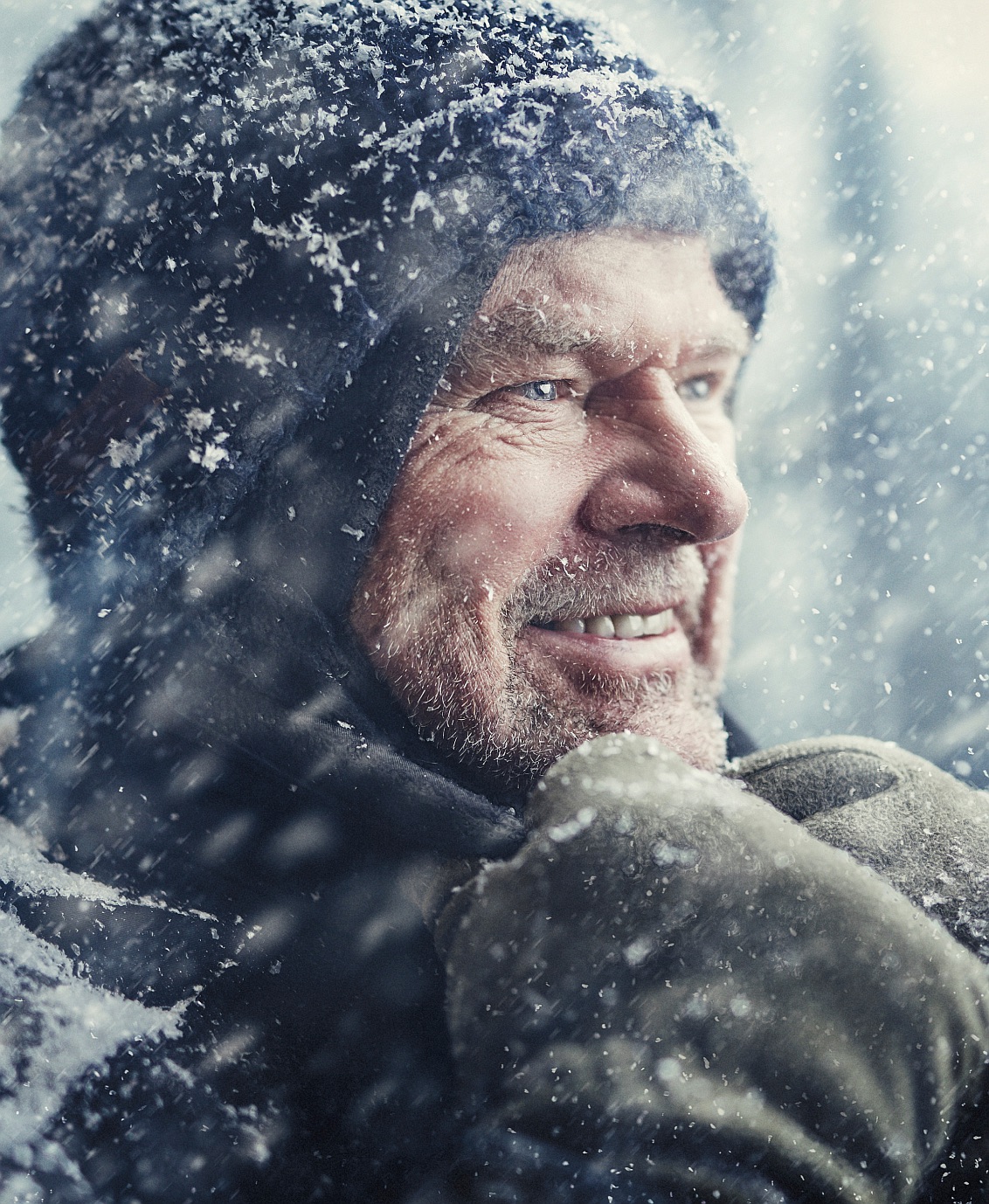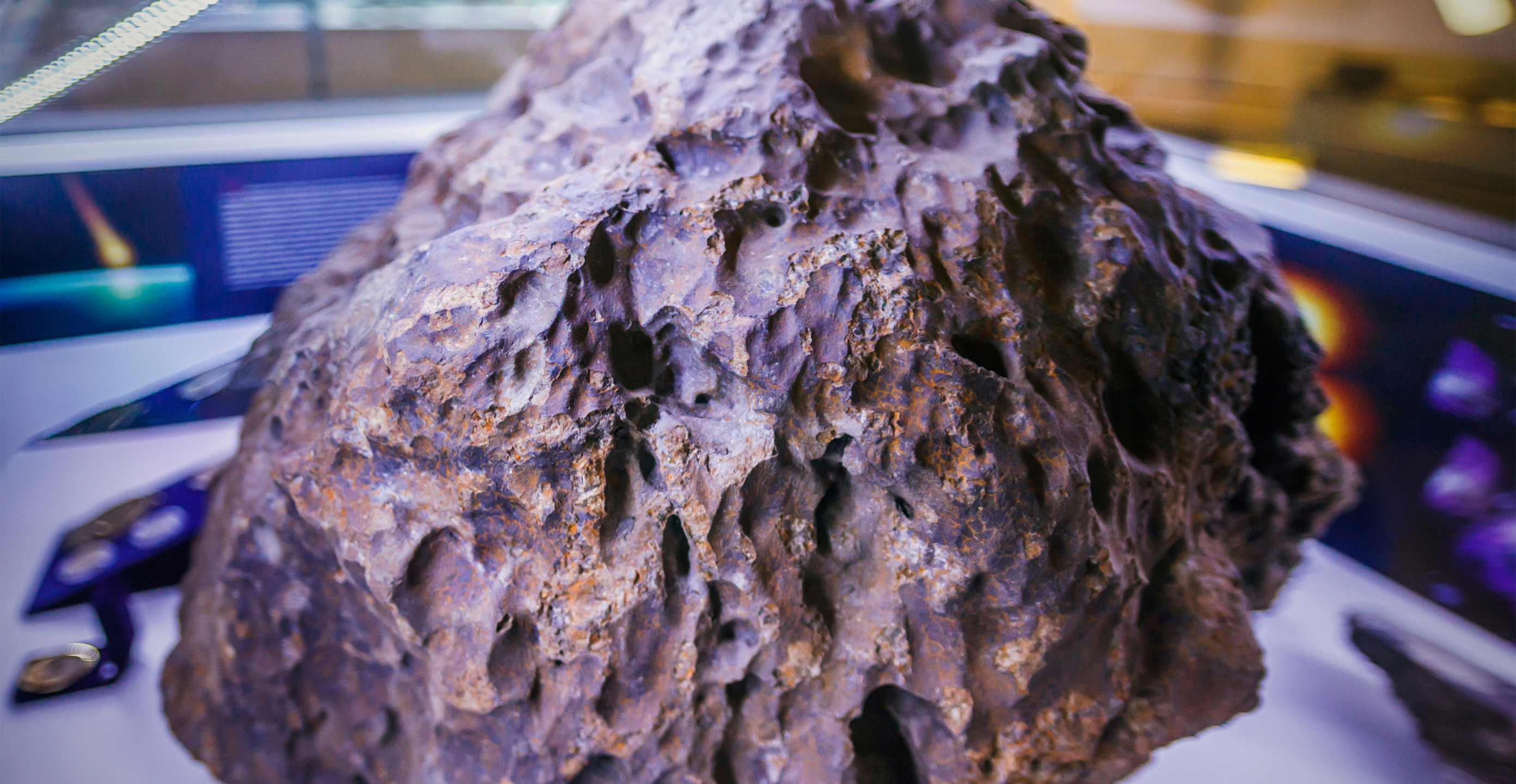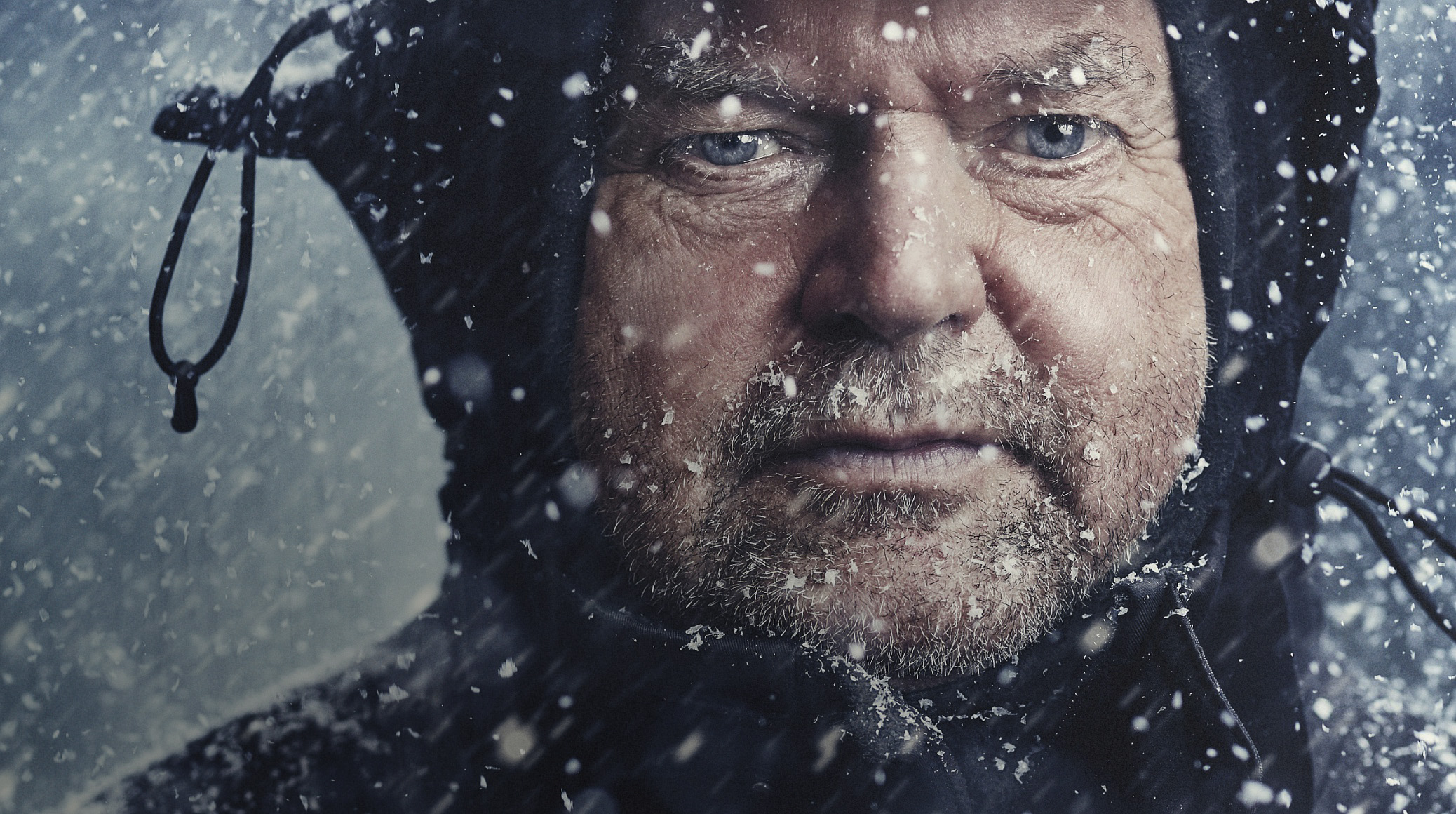Minus 40 °C?
Take off your boots and socks !

The thermostat shows an outside temperature of -38 °C. In the icy darkness, a steaming Lada waits outside the hotel in the metropolis of Chelyabinsk in the Urals, around 4,000 kilometers east of Höxter. As the streets fill with morning rush hour traffic, Reitz fitters Holger Erbgut and Wilfried Wiegers climb into the car to be driven to one of Russia’s largest steelworks. Their job is to install 15 large fans and 24 axial fans with a total drive power of 10,450 kW on schedule, their aim being to meet the official date of commissioning.
A crane goes crazy
It’s October, the days are getting noticeably shorter and the huge construction site of the world’s largest sintered metal manufacturer is a hive of activity. Wiegers and Erbgut are fitters who have seen every plant construction site in the world. Having just arrived, their tricky task is to assemble 10 large KBE fans in a row. If you forget something on the first machine, you can’t get to it later. You have to be aware of this, which is why you need to be 100% focused every second. So far, everything has gone like clockwork and now the next 800 kW motor weighing several tons is to be set up, but instead of approaching the fan housing slowly and carefully, the crane suddenly shoots forward abruptly and without warning. Erbgut works with his back to the suspended motor and is caught by the colossus by a hair’s breadth. The crane moves back and shoots forward again shortly afterwards. The monster goes crazy. Wiegers shouts “Jump!”, whereupon the men jump off the fan and make their way to safety. After what feels like an eternity, the crane finally comes to a halt on its own.
Wiegers and Erbgut take a break from assembly, which lasts a total of three days until the cause can be found and rectified. The ailing electrical system is clearly to blame and not the unfortunate crane operator, who is blamed by his superiors at the first moment of shock. After the near catastrophe at the beginning, the Germans, who are only called Nemjetskis here and are marveled at from all sides, make much faster progress than planned, which leads to irritation on the part of the Russian leadership. This is also clarified in a discussion and the work is then interrupted by mutual agreement for several weeks.
Minus 40 °C? Take off your boots and socks !
In December, Erbgut and Wiegers return to the ice chamber in the Urals for cabling and the first test runs. Now it’s really cold. In the morning at 6.45 a.m. it’s just under minus forty degrees, and over the course of the day the thermometer climbs to a cozy 20 °C below zero. Assembly takes place outside for 12 hours a day, interrupted by short breaks in the heated container. Then back out into the icy hell
The Russian colleagues shake their heads at the German safety gear. Leather and steel mean certain death, or at least solid frostbite. So: boots and socks off! Excuse me? The next day, an older Russian fitter, who is actually a teacher, brings them felt boots and shows them how to wrap their feet with a triangular cloth so that they can survive long periods outdoors. Wilfried Wiegers is delighted and jokingly remarks that he would like to take such boots home with him. A casual remark that, like so many other things, the Russian friends do not forget.
After commissioning, the cab that is to take the Nemjetski to the airport is already waiting outside the door, the technical director rushes into the container: “We have huge problems. Something is wrong with the machine.” Wiegers and Erbgut exchange a meaningful glance: “Holy shit, does that mean we have to stay here over Christmas?” But a wink from the technical manager quickly dispels the irritation: “A joke. He pulls two pairs of felt boots out from behind his back and hands them to the Germans with a broad grin. The boots read: “Thank you for your cooperation. 20.12.2012. Russia, Chemk, Chelyabinsk.” This is followed by appreciative applause from all sides and a wistful farewell to Russian colleagues who have become real friends over the weeks, not least through shared Sunday activities such as hiking and ice fishing in the Urals.

The Chelyabinsk meteorite
The Chelyabinsk meteor was a meteor visible from afar on February 15, 2013 at around 9:20 a.m. local time (4:20 a.m. CET) in the Chelyabinsk Oblast around the city of Chelyabinsk in the Russian Urals after a meteoroite or small asteroid entered the Earth’s atmosphere. According to a reconstruction of its trajectory, it was very likely one of the Apollo-type near-Earth asteroids. It was the largest known meteor in over 100 years. The last time an even larger meteor could have entered the Earth’s atmosphere was during the Tunguska event in 1908. The high number of people injured – around 1,500 – is also unprecedented for a meteorite event, although most of them were injured by shattering window glass. An estimated 3,700 buildings were damaged. The roof of one factory collapsed. According to the authorities, there was damage in six towns in the region. 1,491 people were injured and sought medical help. Most of them suffered cuts from shattering glass and bruises. 43 people had to be hospitalized.
33 times Hiroshima
2 months later – Chemk is running smoothly, it is still lousy cold in the Urals, Wiegers and Erbgut have long since moved on to other longitudes and latitudes, when Chelyabinsk becomes the center of world attention for the duration of a comet’s tail burning up. In fact, the largest known rock from space enters the earth’s atmosphere above the city and shatters with a bloodcurdling bang 15 km above the city. This damaged 3,700 buildings. Windows shatter, injuring hundreds of people. Miraculously, Chemk suffers no damage whatsoever. When Wilfried Wiegers and Holger Erbgut hear about the meteorite crash on television, their first thought is for their friends. Wiegers contacts Julia, their interpreter from Chelyabinsk. Everyone is fine, the fans continue to run as usual, unimpressed. And neither icy days and nights nor glowing comets will change that.
Mr. Wiegers, thank you very much for the interview.
